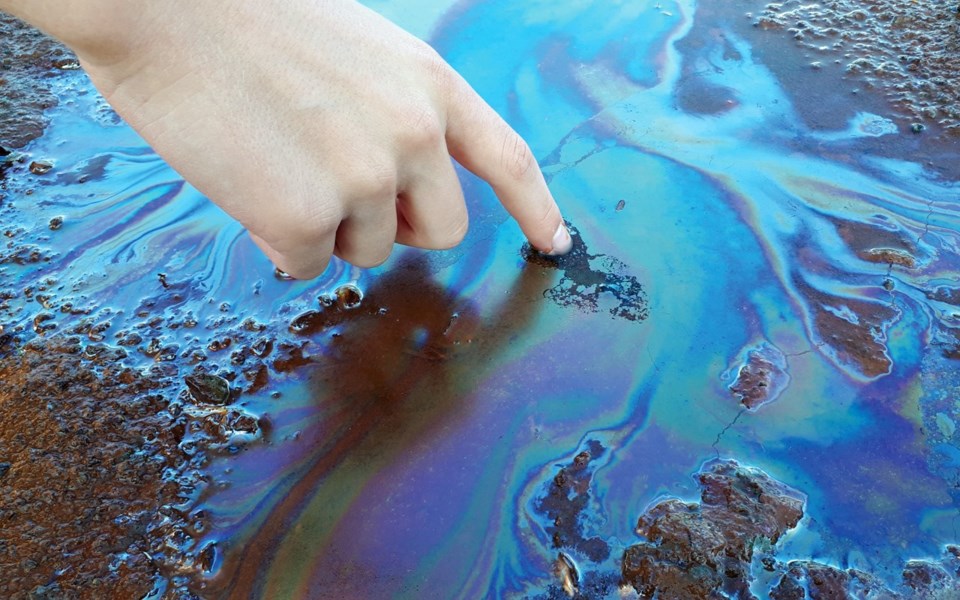while the western toad migration was on during the last month or so at Lost Lake, the nature interpretation team from the Whistler Museum had many questions about this amazing natural event.
Countless people came to witness the tadpoles as they were emerging on the beach as tiny toads or "toadlets." Keenly observant people were also asking about shallow water or small puddles with a rainbow sheen on them thinking they were harmful for the toads.
Maybe you've also seen this rainbow sheen and thought it was a pollution problem, perhaps from sunscreen or some kind of motor oil. It may surprise you to hear that what you're seeing is most likely harmless bacteria just doing what they naturally do.
Iron bacteria, the most common bacteria contributing to this phenomenon, are common in iron-rich freshwater wetlands like those at Lost Lake. Every living thing needs energy to live and these microscopic bacteria use chemosynthesis (chemical reactions) instead of photosynthesis like plants do. The bacteria oxidize dissolved iron and manganese for energy.
The bacteria then secrete proteins and carbohydrates that form a biofilm—the proteins and carbohydrates are lined up end-to-end within sheathes and are stuck together side-by-side in rows on top of the water and refract sunlight.
In other words, the bacteria eat iron and poop out a rainbow. Just when you think you're beginning to understand nature, you discover species so odd, so unexpected that you'd never dream them up and yet they're thriving in the most ordinary of places.
What's also amazing is that this organism has been around for perhaps billions of years—hundreds of millions of years before plants or animals evolved. How's that for staying power? To compare, dinosaurs were around for about 165 million years and modern humans have been around for only about 200,000 years.
These are not bad bacteria; in fact, they are beneficial because they process metals in water. Once the bacteria feed on the iron, it turns to rust, and that rust can grab onto other stuff floating by—like arsenic, other harmful metals, and even viruses. In other words, these bacteria can actually help filter water, a key ecosystem service and but one important reason that preserving wetlands is so important.
There is a quick way you can tell if the oily sheen you see on water is caused by natural bacteria or harmful pollutants. If you disturb the bacteria, the biofilm will "shatter" like glass and won't immediately flow back together due to the way the molecules are aligned and sticking to the surface. Petroleum-based oil sheens will initially separate when disturbed but then quickly flow back together. Petroleum sheens often also have a gasoline-like odour.
You can report any water quality issues like petroleum-based oil sheens to the RMOW Stewardship Department at [email protected]. Other water quality issues to report include a sudden growth or increases in growth of algae, or a sudden change in the colour or clarity of water.




